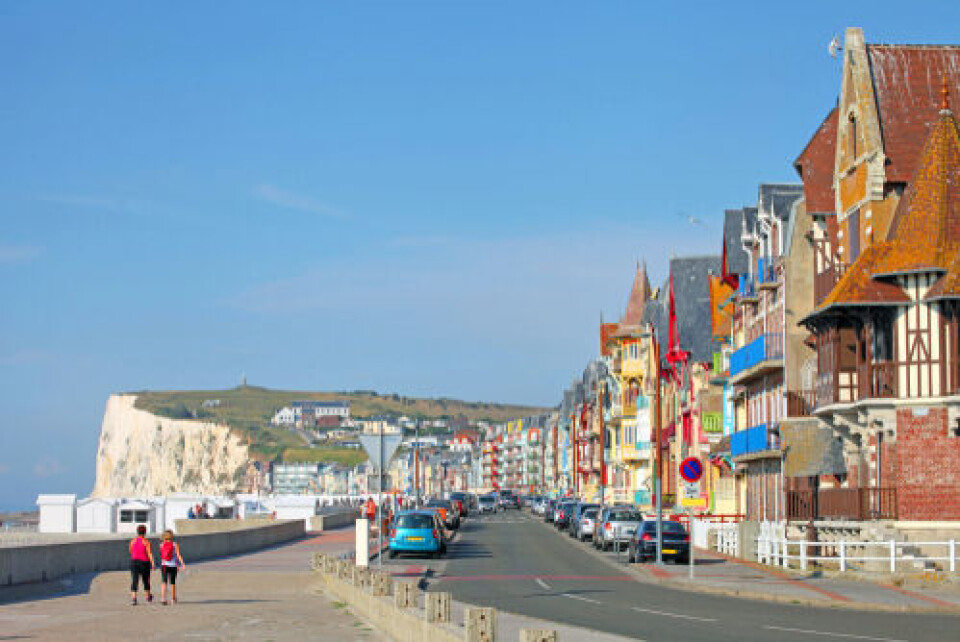-
New anti-cruise passenger tax could affect UK-France ferries
The proposed amendment ‘does not clearly distinguish cruise ships from ferries’, says minister
-
French second homes: How capital gains tax abatement works (2025)
The tax exemption at sale depends on the time elapsed since the property was purchased
-
French second homes: tax-exemption time for capital gains may be reduced
MPs voted the bill through in a bid to improve housing market in high-demand areas
Delay to plan to increase local tax for more second homes in France
A list of extra towns that will be able to charge up to 60% more in taxe d’habitation has been postponed

A list of new areas in France that will be able to require up to 60% more taxe d’habitation to be paid on second homes is now only expected by the end of the spring, a government minister has announced.
A decree outlining communes eligible for the increases was due to be released in mid-February but this is no longer expected, meaning any actual increases are now likely to apply from 2024 and not 2023.
This is because mairies have only until the end of February to vote to apply an increase to this year’s tax.
The change is expected to authorise more towns, especially those in popular coastal areas, to increase taxe d’habitation on second homes if they vote to do so. Around 4,000 additional communes are expected to feature in the list and thus be able to do this, according to Le Figaro.
Taxe d’habitation has been abolished for all main homes and is now only payable by second-home owners.
Read also: Dozens of French mairies employing private firms to track tax fraud
Read also: All owners of French properties must fill in this new tax-site form
Budget boost
The new measure has been introduced partly to help increase budgets in towns that have been hit by Covid and the lack of taxe d’habitation from main homes; and partly to give authorities another means to address problems of housing tensions. It means more areas will be able to be designated as so-called zones tendues or under-pressure zones.
Before the new measure, only communes with more than 50,000 residents and in which “a major imbalance between supply and demand of housing is causing serious difficulties with access to housing” were designated as such and were thus able to charge extra taxe d’habitation. The new law will do away with the requirement for 50,000 inhabitants.
Housing Minister Olivier Klein said: “This is an important measure that we support in the context of the finance law, and we are strongly motivated to put it in place.”
However he added that discussions with associations for councillors had, so far, proven that it would be “impossible to find a balanced position” so as to allow publication in mid-February.
He said this was partly due to complications over the fact that in communes designated as being zones tendues – apart from being able to charge more taxe d’habitation – have different tax arrangements regarding ‘vacant’ properties (those left unused and not furnished to be lived in), and some communes were worried that they needed more time to consider the ramifications of this.
Read also: What is France’s empty homes tax and why more people will be paying it
Public Accounts Minister Gabriel Attal has promised that a decree will be published by the end of spring to enable communes to “deliberate before October 1, on whether to increase the taxe d’habitation on second homes from the start of next year”.
Government ‘backpedalling’?
A group of coastal councillors, l’Association nationale des élus du littoral (Anel), criticised the delay and accused the government of “backpedalling”.
It said: “Increasing taxe d’habitation on second homes is the only local economy lever that communes have if they want the freedom to finance a political stance in favour of permanent residents.”
Read more: Second home tax increase: Where in France may be affected by new law?
It called on the government to “take out a necessary decree, at least listing communes that have agreed to the measure while we wait to be able to vote for an increased taxe d’habitation”.
The group also criticised the way that the law has been written because communes that opt for the change of status can no longer vote to levy taxe d’habitation on vacant properties.
They are eligible to levy a different tax, taxe sur les logements vacants (TLV), but this is charged at rates fixed nationally, as opposed to taxe d’habitation sur les logements vacants where councils are free to set their own rates. In addition, the (maximum) 60% surcharge does not apply to TLV.
Related articles
Where is a local tax surcharge applied on second homes in France?
French second homes: taxe d’habitation rates continue to rise
Who still has to pay taxe d’habitation in France and until when?
























